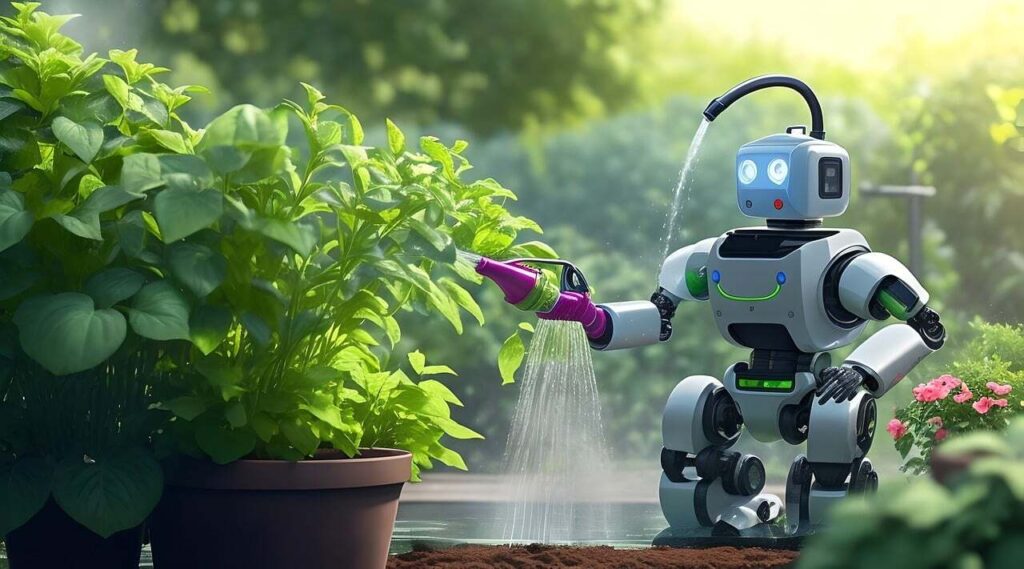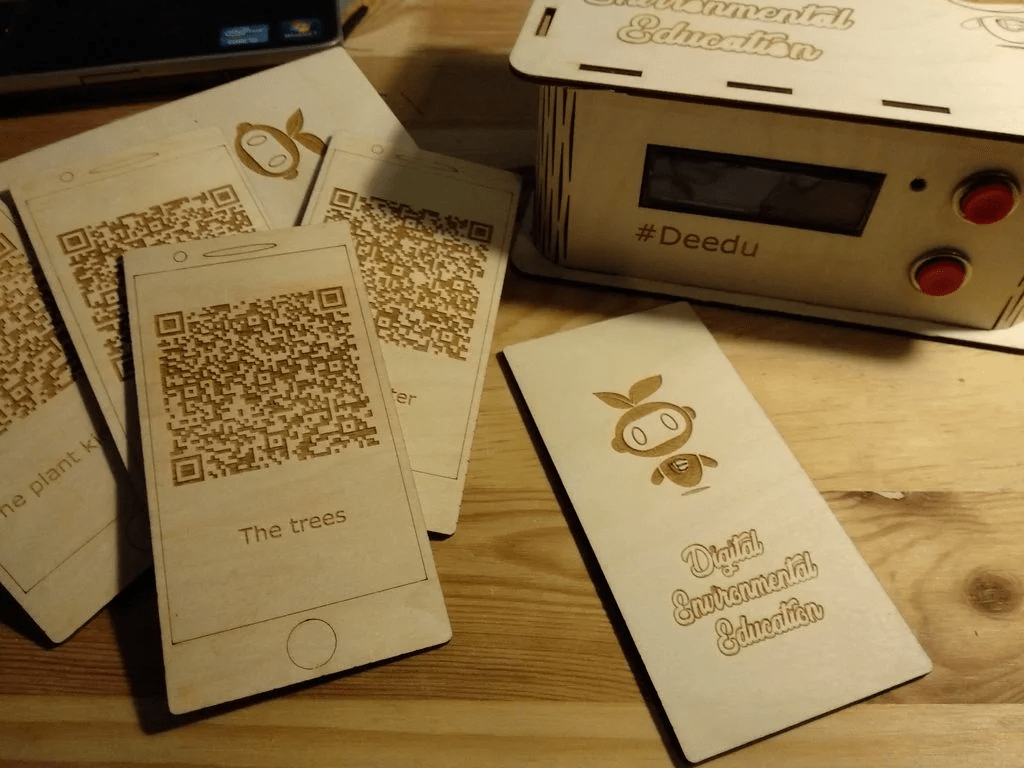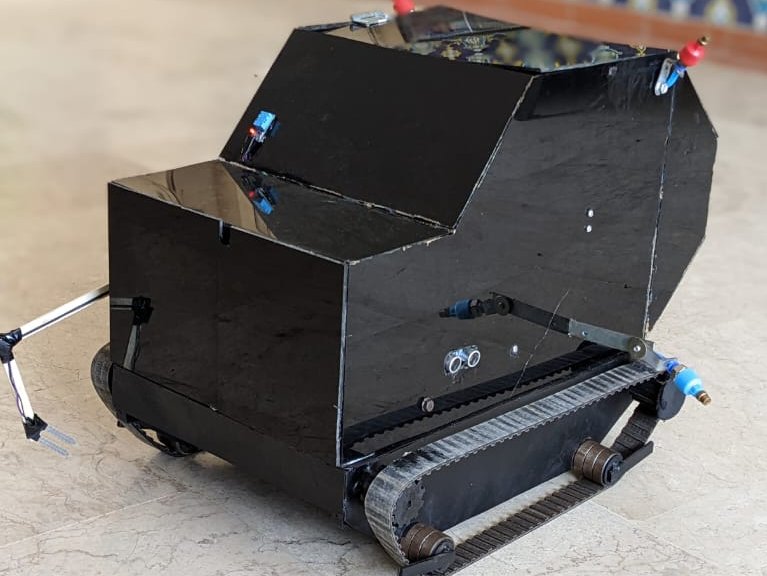7 little-known tech solutions to take your garden to the next level

A well-maintained garden is a beautiful thing. The envy of your friends and neighbors, and a lifelong project you can truly take pride in, especially in the summer months.
Gardening itself, though, can be a chore. The really fun parts often feel like a small fraction of the overall work, with a ton of time spent on tedious, boring, and even physically uncomfortable tasks.
The good news is that automation can help. In fact, garden automation is its own entire topic — one that’s growing in popularity all the time.
By tapping into this rapidly growing pool of garden automation tools and technologies, you can take your garden to the next level. Save time on the dull work so you can focus more on the rewarding stuff, and use tech to enhance your garden and make it better than ever before.
In this article, we’ll look at some of the key ways tech and automation help with gardening, and how you can start harnessing it at home.
How can tech benefit gardeners?
Let’s dive into a few of the ways tech can help gardeners:
- Save time by making tasks more efficient and automated.
- Take care of boring tasks, leaving you free to focus on the more interesting and enjoyable elements of gardening (which may be simply chilling out in your garden).
- Assist with planning and design, helping you build the most attractive and convenient garden possible.
- Make things more fun with creative and collaborative projects
Garden automation trends to pay attention
We’re currently living through an incredibly exciting time when it comes to technology. New, fascinating trends are emerging all the time, and existing technologies are growing at breakneck speed.
When it comes to garden automation, let’s check out some of the most interesting tech trends and solutions you can tap into this summer.
Soil monitoring and management
Soil is the lifeblood of your garden.
Without healthy soil, imbued with just the right balance of nutrients, minerals, pH levels, and moisture, your dreams of a thriving and beautiful garden are over before they’ve even begun.
However, it’s hard to find out this information ourselves. There are techniques and tricks you can use, but they rely on guesswork more than actual measurement.
This is where technology comes in. Smart garden tech makes it possible to accurately monitor all kinds of different aspects of your soil health. Thanks to the Internet of Things, even amateur gardeners can now access a ton of powerful sensors that keep track of various key metrics and alert you when something needs to change.
You can even install automatic tools to fix any issues your sensors detect. Let’s find out more about that.
Automated irrigation systems
Watering your plants by hand isn’t just tedious, it can also be wasteful.
The downsides to underwatering your plants are obvious, but overwatering can be bad for the plants and soil, as well as wasting precious water, especially in the hotter months.
On top of that, relying on manual watering can mean forgetting key times, and of course the stress of leaving home for a few days and worrying about your garden becoming dry and wilted.
Once again, though, tech can help out. Smart irrigation systems combine sensors with up-to-date weather data, planning and executing watering schedules that work perfectly for your garden with minimal wastage.
Better gardening through AI
Whatever you think about it, there’s no denying that artificial intelligence is the flavor of the month right now, and with good reason.
We’re currently experiencing a renaissance of AI, with new tools exploding onto the scene every day and regular massive leaps forward in sophistication and power.
Gardening might not be the first use case that springs to mind for AI, but there is actually lots of potential here for tech-savvy gardeners. Here are a few examples:
- Robots: Just like the Roomba revolutionized the way we clean our carpets, automated lawnmowers and other tools are transforming the way we care for our gardens.
- Designing your garden: AI can now suggest ideas for how to design your garden, like providing plans for different layouts and structures, suggestions for plants and colors that work well together, and recommendations based on your previous designs, preferences, and your location.
- Reminders and updates: The right apps can help you stay on top of various aspects of running your garden by using AI to notify you when you need to do tasks like watering your plants, trimming the lawn, planting seeds, and more.
Smart pest control
Hungry pests are the bane of any gardener’s existence, and depending on where you’re located they can be an enormous problem.
Gardeners have battled against pests for millennia, trying just about every strategy under the sun to finally defeat them, with varying degrees of success.
Now, technology may provide yet another powerful weapon in this fight. In fact, it can offer several.
Here are just a few quick examples:
- Automated traps that quickly and efficiently remove pests from the danger zone.
- Pheromone-based systems attract pests by simulating the chemicals that lure them in, drawing them away from your precious plant life.
- AI-driven pest detection tools can be used to accurately monitor your plants for the presence of unwanted visitors, and then guide your pest control systems to efficiently deal with them.
On top of helping you reduce pest damage, these technologies also remove the need for harmful pest control methods like toxic pesticides and help you move towards a safer, cleaner, and more environmentally-friendly approach to gardening.
Vertical and space-efficient gardens
If you live in an urban environment, the chances are that one of the biggest challenges for you when it comes to gardening is a lack of space.
It can be tough to grow a varied, beautiful garden when you have serious constraints on space, but the good news is that smart gardening methods can help you stretch every square meter further and build a much more space-efficient garden — even if you live in an apartment.
One example here is stackable planters — essentially multiple plant containers stacked on top of each other that allow you to grow several different types of plants in the same space. These can range from simple, basic designs to much more complex constructions.
Another way technology can help make the most of small spaces is by giving you the insights and tools to optimize things like light exposure, water distribution, and plant health. This lets you make the most of limited resources to grow the best garden possible in the conditions available to you.
Integration with smart home systems
A well-equipped smart home is a hive of powerful features and tools.
Voice assistants and mobile apps bring everything together, enabling you to control your lighting, sound systems, heating, A/C, and much more at the touch of a button or a single spoken command.
The same process can be extended to your smart garden.
By integrating your smart garden tools like automated sprinklers, sensors, traps, and gardening robots with your existing smart home ecosystem, you can even more easily control your garden and stay on top of key data insights.
This can save a ton of time and bring your home and garden into the same, easily controlled system.
Data-driven plant selection
Not all plants are suitable for all gardens.
Various factors like your soil type, climate, water levels, humidity, and a ton of others will determine which plant species thrive in your garden, and which ones wilt away.
Finding out which plants fall into each category can be an incredibly time-consuming task, one that takes many gardeners years to work out through trial and error. Fortunately, with the right smart garden tools, you can shave a ton of time off that process.
Apps like Iris allow you to share information about the conditions in your garden — like climate and soil data — and it will recommend the best plants for you.
Data is an incredibly powerful, yet underused, tool for gardeners. It can help you grow a garden the smart way, by making informed and intelligent decisions to save huge amounts of time and disappointment.
Make it a family activity
One of the great things about gardening is that it’s an activity that really can be fun for the whole family.
With the right tech gadgets and tools, you can make gardening much more engaging and rewarding for kids, sparking what could be a lifelong interest in the hobby.
There are many resources to help with this. For example, this project from EDUcentrum uses Arduino tools combined with other components to help children build their very own automated gardening kit.
The project is designed to help kids get some hands-on experience with automation while learning about plants, gardening, and the environment — all while cooperating with other young learners from different countries.

The power of a smarter garden
Smart garden automation can completely transform the way you care for your garden and approach your future gardening plans.
By helping you make data-driven decisions, monitor the right vital signs more easily, keep pests at bay, and automate tedious tasks, technology can bring joy back into gardening while at the same time giving you a healthier, better-looking, and more durable outdoor space.
Everyone’s garden is different, of course, so ultimately this is all about experimentation and finding out the right tools and technologies that work best for you.
At Arduino, we have many different solutions to help you build and refine your own smart garden, along with just about every other aspect of your home. Check out a few examples from our users:
A smart soil moisture sensor
Check out this project by Arduino user Fouad_Roboticist. It’s a soil moisture sensor, made using just a handful of fairly simple components.
The sensor works by sending the data from the sensor to an Arduino microcontroller, giving you the ability to stay on top of your soil moisture more easily and efficiently.
Automated plant watering
Arduino user Saikan45 decided to build their very own automated plant watering system. The goal was to automate plant watering while ensuring there was enough moisture for healthy growth.
The project was also designed to cool the soil and soften the tillage pan, reducing the need for human work and creating a more suitable environment for plants to thrive. Built using just a few simple components, Saikan45’s project has the potential to save gardeners a ton of time and stress.
Crop monitoring and controlling
Arduino user beena_2000 created a robot that saves a huge amount of human time by giving real-time readings of temperature, humidity, and soil moisture, combined with live camera recordings from the robot.
Everything is controlled through a mobile application, and the robot can move through the environment and deploy pest spray and fertilizer to specific plants, avoiding wastage.

With an Arduino, some basic components, and a curious mind, there’s no limit to what’s possible. Get in touch with us to find out more and get started!